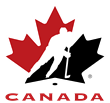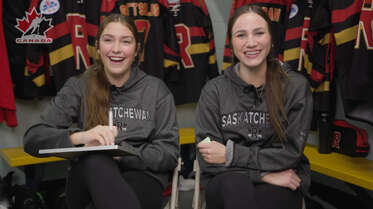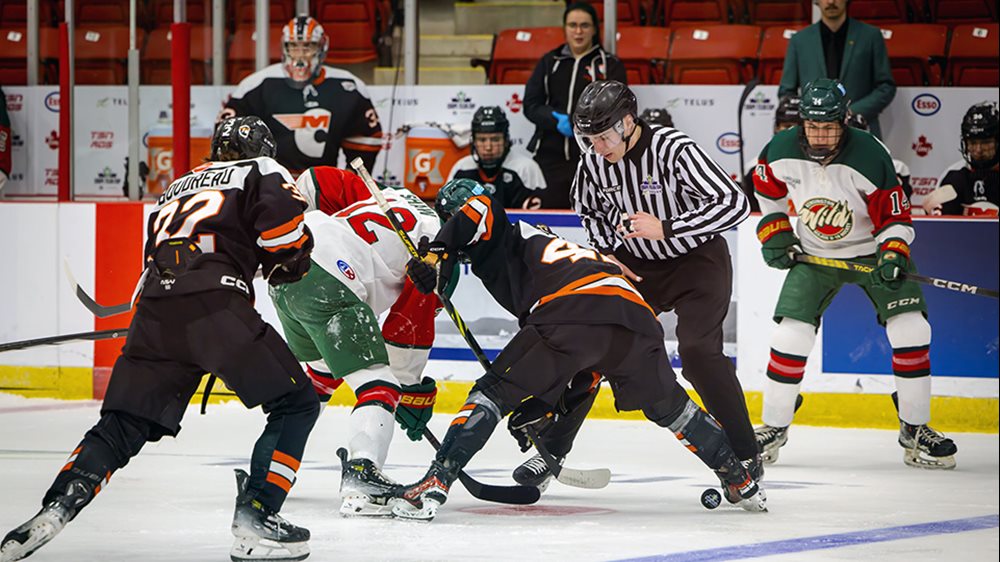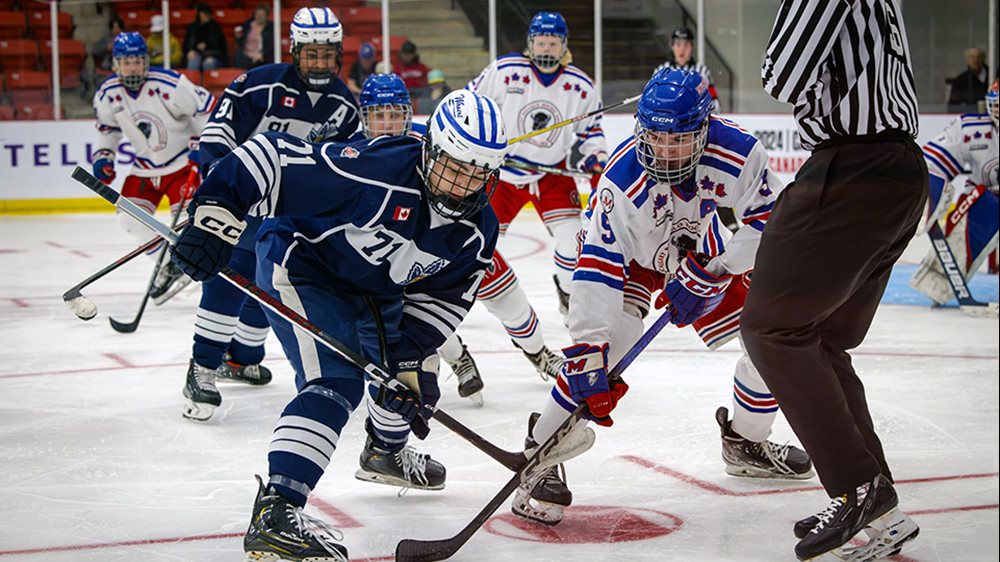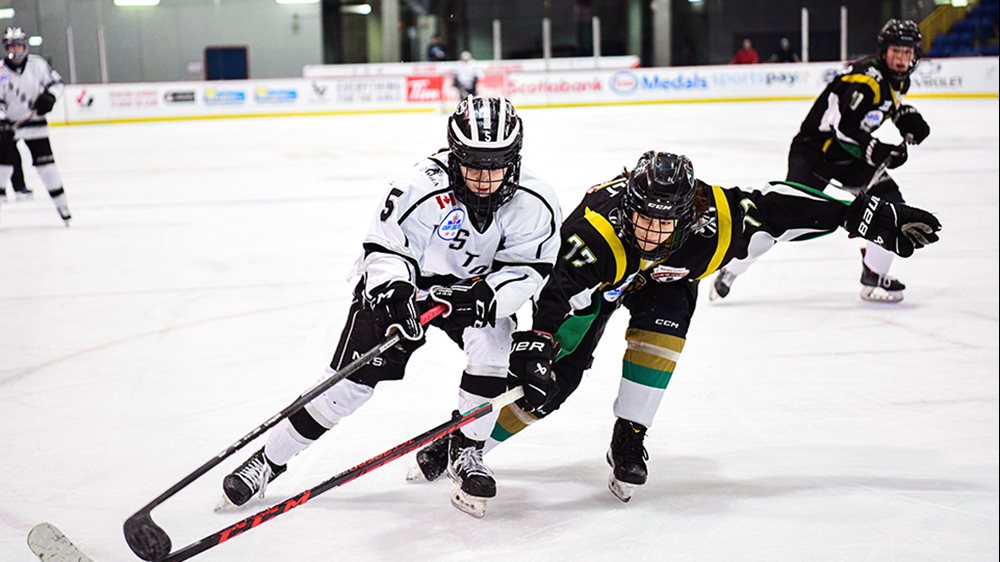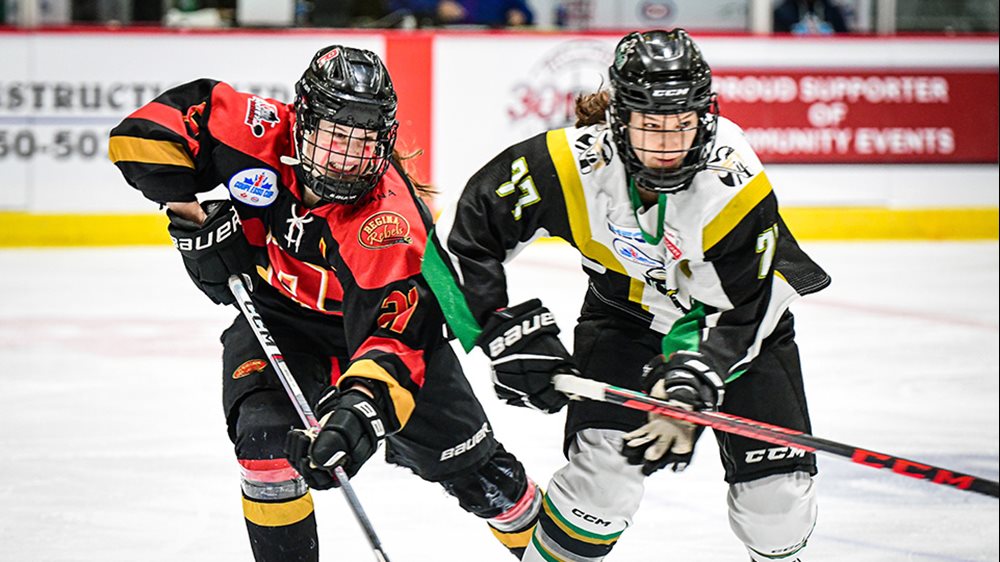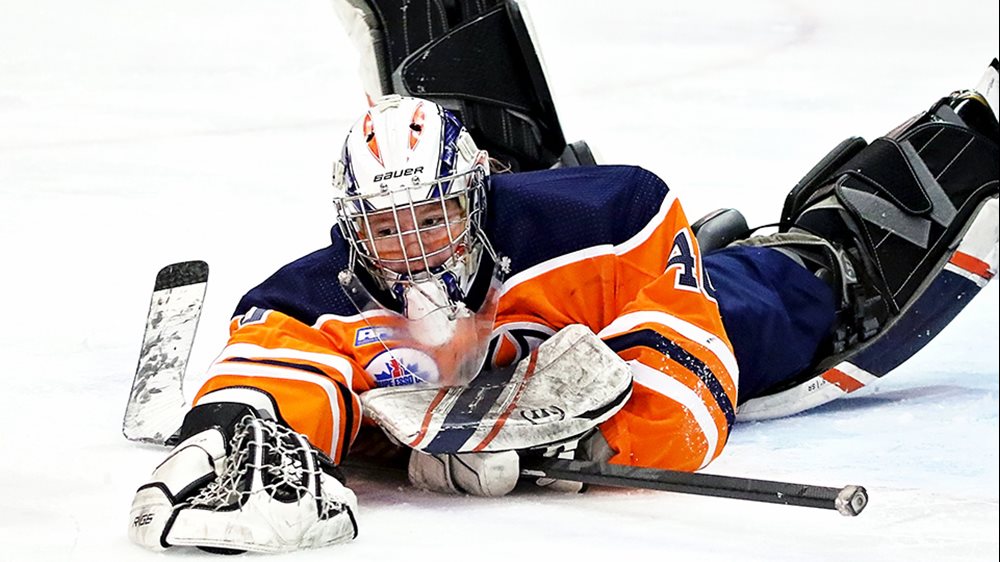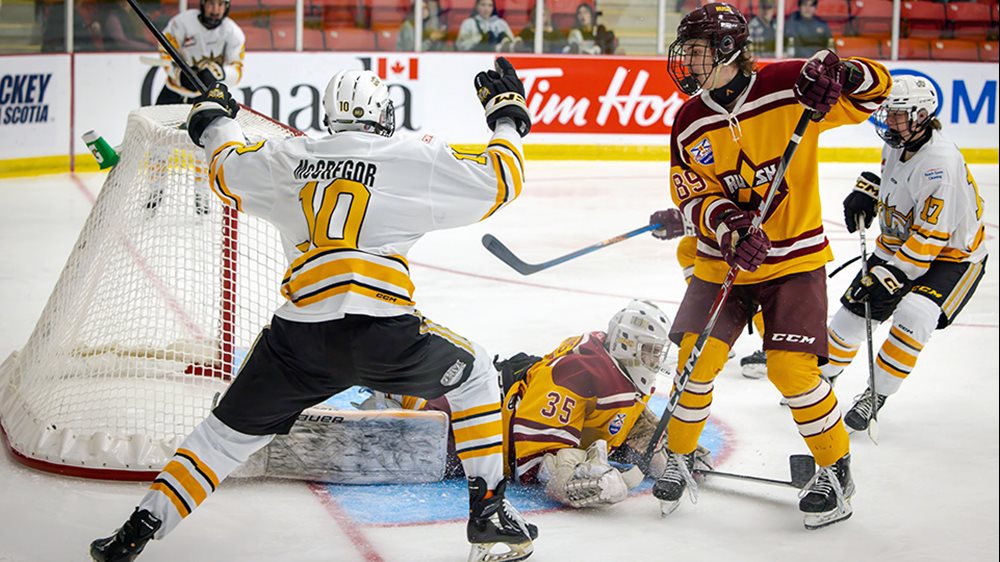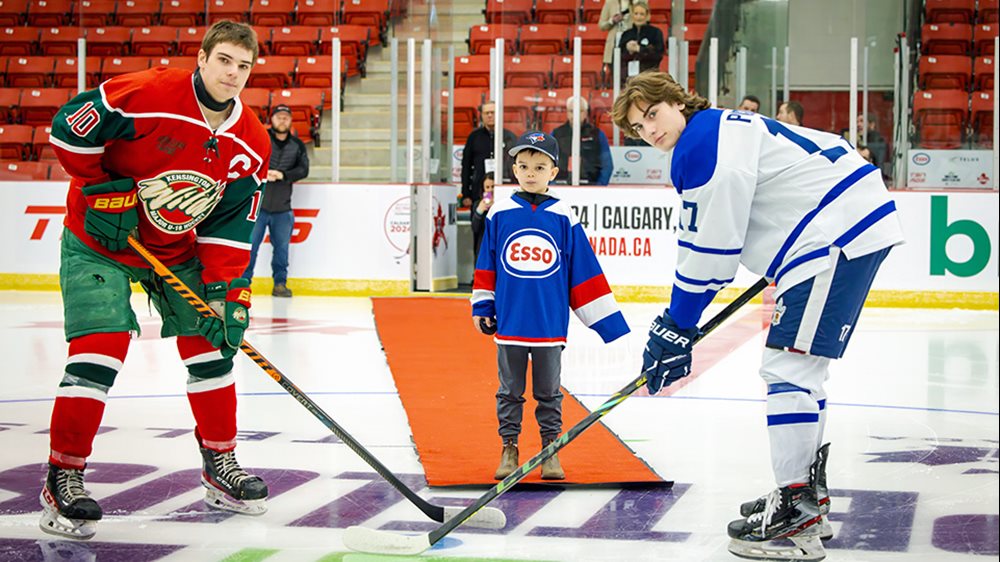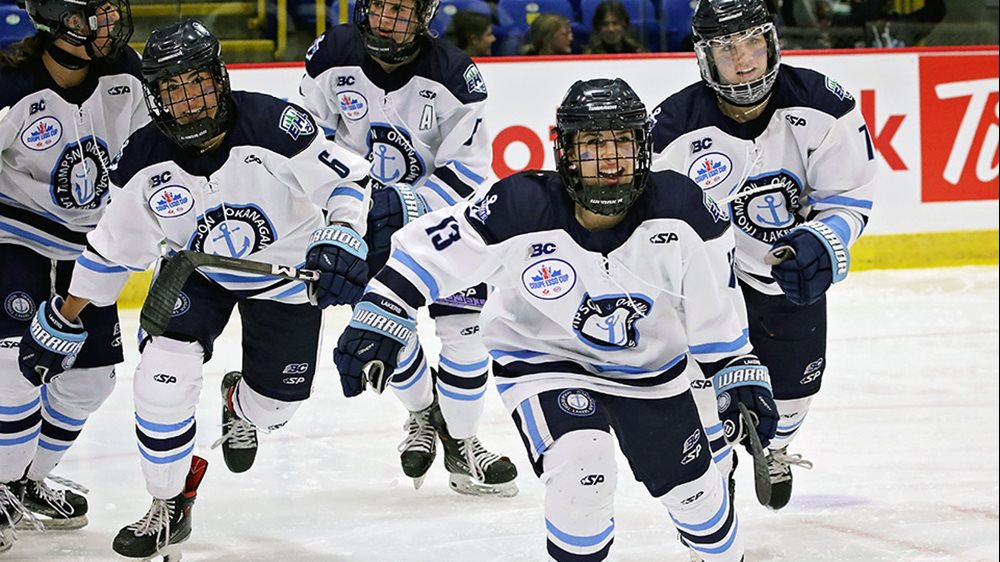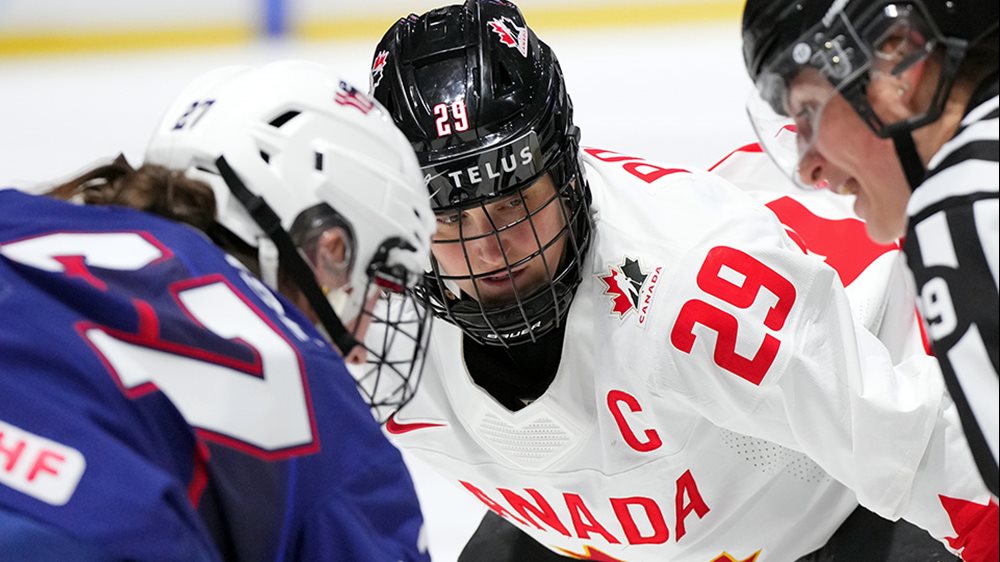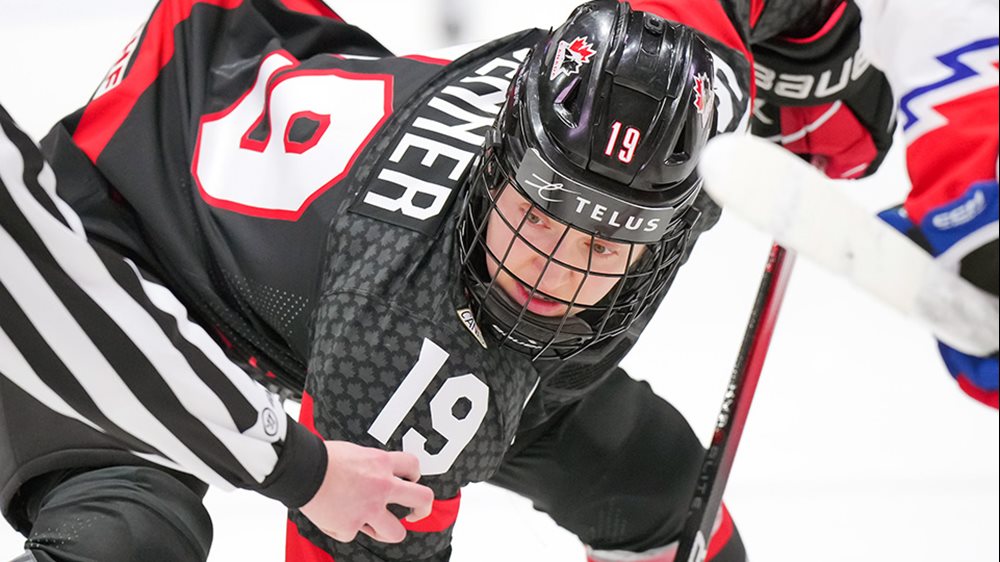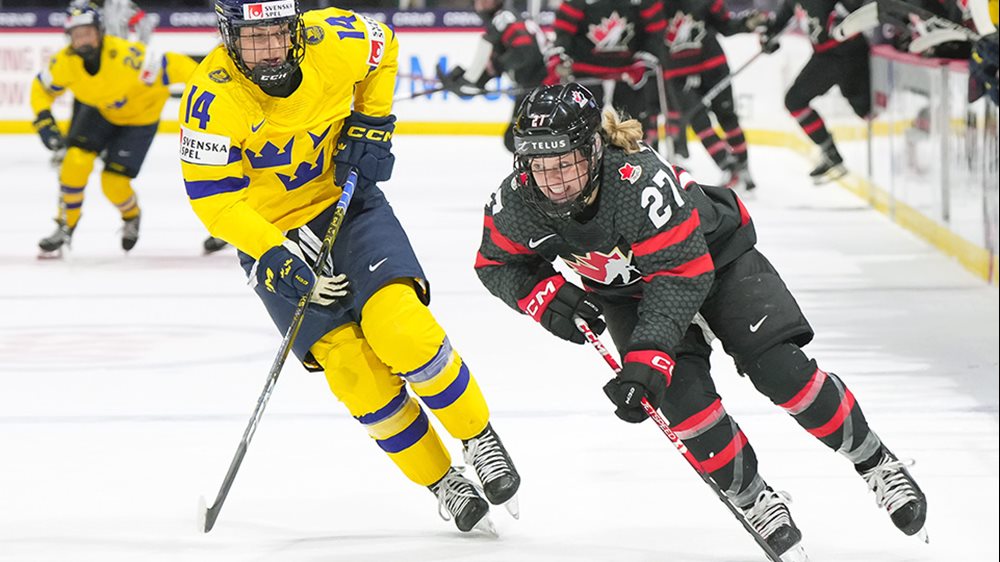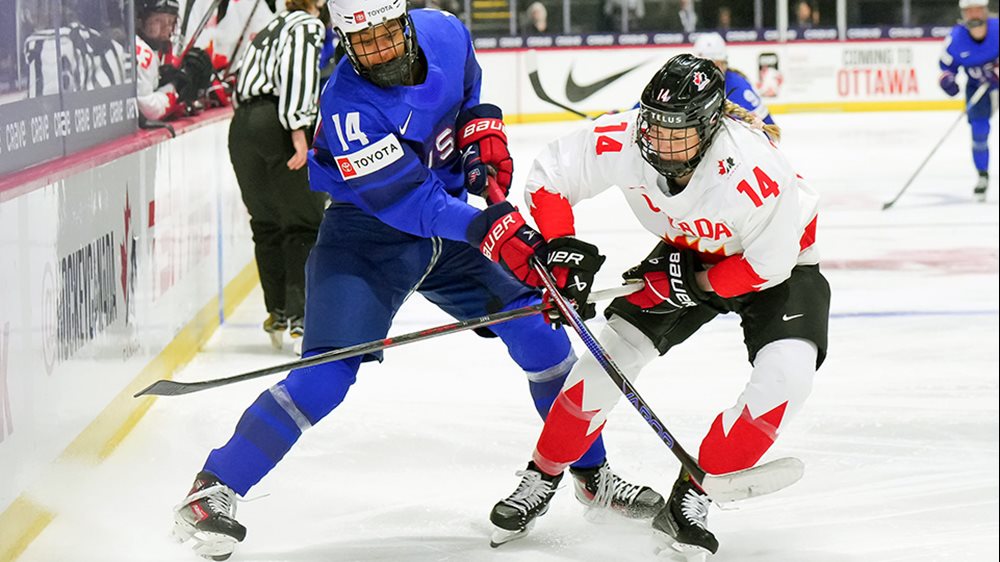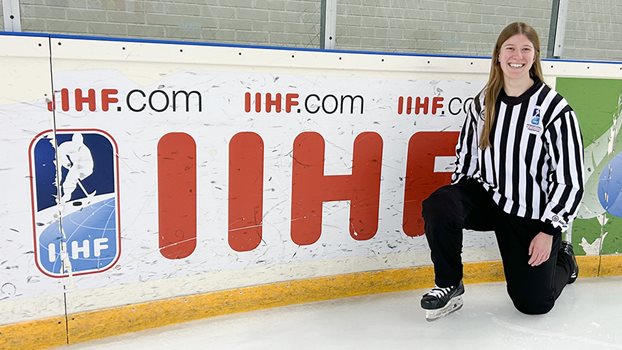
Life between the lines
A late starter in hockey, Ali Beres didn’t let that stand in her way of reaching her goals and setting herself up for a successful second act as one of Canada’s top young linespersons
Once Ali Beres sets her sights on a goal, she will most likely accomplish it.
Switching from ringette to hockey to transitioning to officiating after her U SPORTS hockey career and embracing other athletic pursuits, Beres’ determination keeps her chasing new goals.
“I’m lucky to have athletics be a huge part of my life growing up,” says the 27-year-old. “I feel very fortunate to be involved in sports and at the level that I am with the opportunities I’ve had.”
Growing up in Lions Bay, B.C., about 30 minutes from Vancouver, Beres and her sister Maegan played ringette as there were no girls’ hockey programs. When she was 13 years old, she switched to hockey, intending to play at the university level.
Transitioning from ringette to hockey required Beres to learn new skills, including stickhandling and shooting the puck.
“When I switched from playing ringette to hockey, there was a skill and knowledge gap,” she says.
A coach told her that she was behind her peers at that age and probably shouldn’t bother, but her drive led her to participate in skill development camps and shooting 200 pucks in the family garage so she would be able to play.
“I remember that conversation with this coach when I was 14 years old. That moment shaped me and who I am today,” says Beres. “It taught me that if you want something badly and you put in the effort and hard work and you have the determination, you can still achieve your goals. Most importantly, to never give up on something you love.”
That love and passion led her on a successful hockey path, including playing for B.C. at the 2013 National Women’s Under-18 Championship and varsity hockey at Western University in London, Ontario, where she won a U SPORTS national title in 2015, a silver medal at nationals and two Ontario University Athletics (OUA) championships.
As Beres finished her university career, she thought about what would come next. She knew she wanted to stay involved in the game and leaned on an aspect of the game she used to participate in – officiating.
“I wasn’t ready to just hang up the skates and call it quits after my U SPORTS career. The rink has been a part of my life since I was three,” she says. “As soon as the final game ended, it was so emotional. I knew after that I was going to have to get a job and that I wasn’t going to be playing anymore. I remembered that I loved officiating growing up.”
Beres decided she wanted to put on a new jersey, play on a new team and see where officiating could take her. After graduating, she got re-certified in Ontario.
“I just kept skating lots of games with so many different people and games as possible and learn as much as I could,” she says. “I saw so many people ahead of me in the program and saw all their accomplishments and telling my mentors that those are the assignments that I’d love to take on.”
Since transitioning to officiating, Beres has had the opportunity to participate in the Hockey Canada Officials Program of Excellence (OPOE), which is a performance pathway for officials to reach their high-level goals.
Since then, she has been a linesperson at some significant events, including the 2014 IIHF U18 Women’s World Championship (Division 1B) and the Professional Women’s Hockey League Battle on Bay Street game between Toronto and Montreal earlier this year.
“I’m grateful to have had so many opportunities through officiating,” says Beres. “What I love about officiating is that you’re still part of the game. It’s intense … there’s pressure on your shoulders and you’re still competing as an athlete. It is our job to make sure the game is played fair and safe.”
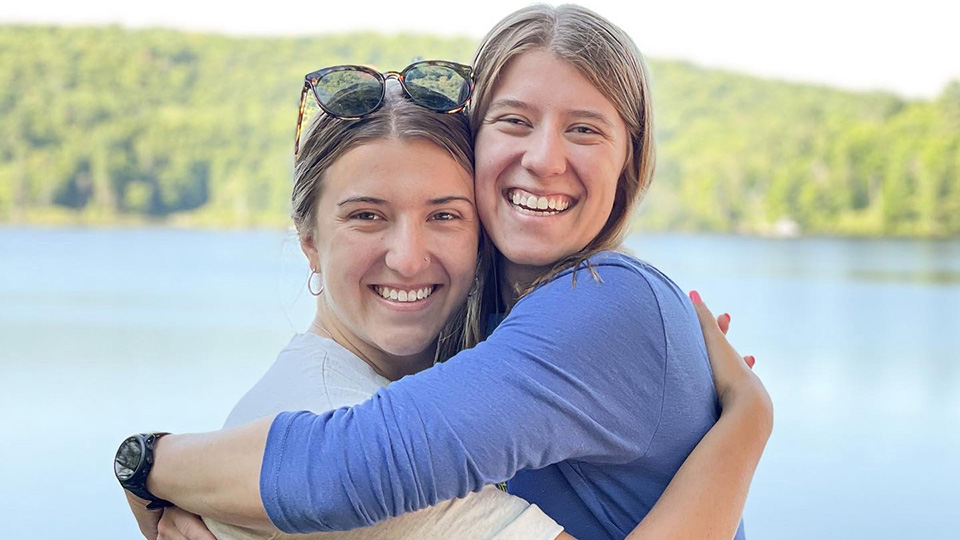
Beres wouldn’t be able to balance life as a solution engineer with a procurement company, officiating and competing in triathlons without the support system of her family, particularly Maegan.
“We are best friends and we’ve always been competitive,” she said. “We’ve always tried to push each other. Our parents instilled solid values in us. While we were competitive, we also supported each other, and knowing that each other’s successes doesn’t mean the other isn’t successful.”
Like Ali, Maegan had hockey aspirations that she was determined to achieve. She played NCAA hockey for Boston College and with the Toronto Six of the Premier Hockey Federation, and won a silver medal with Canada at the 2017 IIHF U18 Women’s World Championship.
“We’ve always been super close, and she turned into such a big role model for me and being the younger sister, you kind of idolize your big sister,” says Maegan. “When I had a lot of success in my hockey career, she was one of the closest people to me and I always leaned on her for advice and support.”
Being athletically fit is important to stay at high-level hockey pace, but it also helps Ali stay mentally fresh and healthy and able to balance her professional career as well. Outside of officiating, Ali competes in triathlons, a sport she quickly fell in love with.
“The players are giving 100 per cent, so we need to be able to match that and give it our all too. I was a little bored of the gym, so I wanted to push my athletic comfort zone, so I signed up for an Ironman 70.3 (also known as a half-Ironman) and I got really addicted,” Ali says.
As Ali continues to set goals for herself – including officiating at the Olympics, her sister knows her drive is what will get her there.
“Once she has a glimpse of that goal, I just know she will do everything in her power to get there and accomplish it,” says Maegan. “I am very proud of her and what she’s accomplished and seeing her transition from her playing career in hockey into officiating. I’m excited to see where this journey takes her.”
For more information: |
- <
- >
